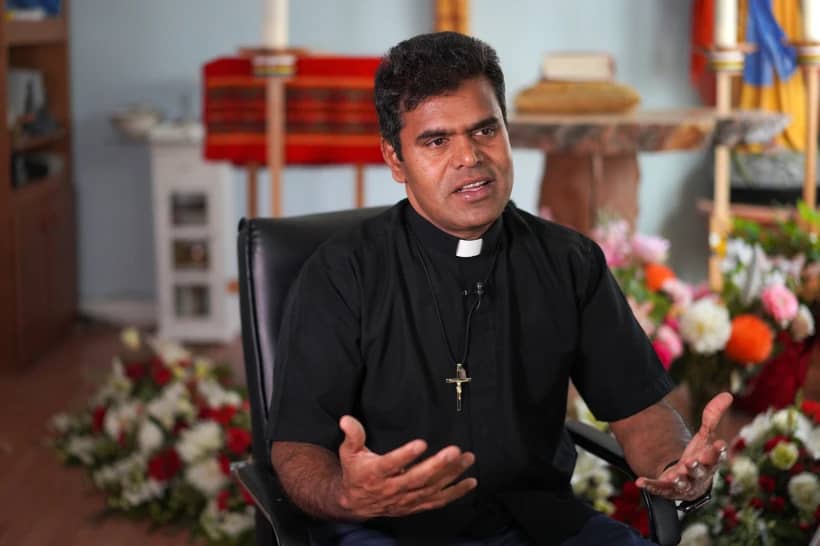ROME – After a group of Discalced Carmelites in Northern Argentina sued their archbishop and a Vatican envoy for “gender violence,” the country’s other Carmelites sent a letter to the president of the bishops’ conference saying that ecclesial communion is “a priority.”
The religious women sent the letter to Bishop Oscar Ojea of San Isidro, and it was read last week during the bishops’ conference’s general assembly.
The religious sisters wrote to Ojea “with motive of the last events of public knowledge,” but without “entering in judgement of the sides”; they affirmed that “for us ecclesial communion is a priority,” and as such, they wrote that all differences “must be resolved as a family in the womb of the Church, which processes the necessary and proper instruments to judge in each case, and as such put in place the necessary remedy.”
“We advocate for dialogue and not for confrontation, which not only leads us to deepen the wounds and wound fraternal charity in a world divided by hatred and wars, but awaits our testimony of life and mutual respect,” they wrote.
A group of Discalced Carmelite nuns have filed a complaint with a local court accusing Salta Archbishop Mario Antonio Cargnello, Bishop emeritus Martín de Elizalde, and vicar general Msgr. Lucio Ajaya of “physical, psychological and economic violence.”
The archbishop has denied the accusations, while the other two have remained silent. Elizalde and Mother Maria Isabel Guiroy, a Benedictine, were sent to the convent by the Vatican for an apostolic visitation, which had been requested by Cargnello following several clashes with the prioress, Fátima del Espíritu Santo, whose term has expired. Guiroy was not named in the complaint.
The Convent of St. Bernard in Salta is located some 870 miles northwest of Buenos Aires.
The priests of the region have published a letter in support of their bishop, while feminist groups, many of them pro-abortion, have sided with the nuns, symbolically “hugging” the convent holding signs saying, “Sister, I believe you.”
The Forum of Women for Equal Opportunities, one of several groups that participated in the demonstration May 3, published a post on Facebook defending the nuns and accusing the bishop and the local “conservative hierarchy” of oppression and “obscurantist fundamentalist thought.” They accompanied their post with a picture showcasing two handkerchiefs, one orange calling for a separation of Church and State – already a reality in Argentina – and one green, which has become the symbol of legal abortion in the country.
The cloistered nuns have long been at odds with Cargnello over their support for a local woman who professes to have seen visions of the Virgin Mary that the church has not recognized nor accepted, known by many as Argentina’s Medjugorje.
In the April 24 letter from the country’s other Carmelites – made public by Argentina’s Catholic news agency, AICA – the nuns expressed their “filial adhesion to the person of our bishops, from whom we have always received cordial signs of friendly affection and paternity, manifested in multiple opportunities and in different ways.”
Argentina’s Carmelites committed themselves to pray “intensely” for the resolution of this conflict and took the opportunity to thank “vividly” the ministry and affection of all “our bishops” for their advice, exhortations and teachings.
Cargnello was originally expected in court May 3, but since he was in the bishops’ general assembly, his appearance was postponed for this week.
Follow Inés San Martín on Twitter: @inesanma














